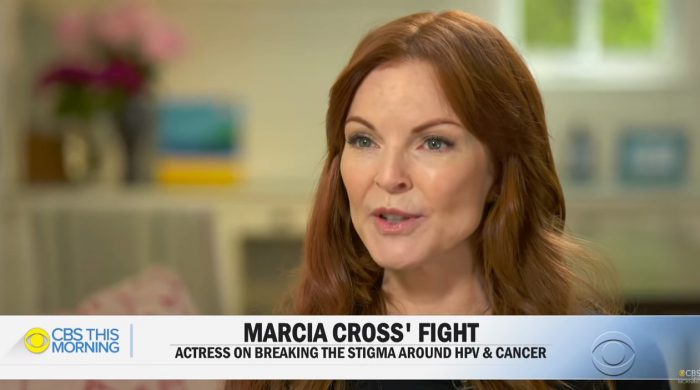
Award-winning actress Marcia Cross has dealt with the trials and tribulations of Hollywood life for decades. But nothing could have prepared her for the health challenge she has faced over the last year.
During a routine rectal exam, Cross’ doctor found a cancerous mass. She was diagnosed with anal cancer and underwent six weeks of radiation then two weeks of chemotherapy. The experience was eye-opening for her in more than one way.
First, Cross found that she had to overcome the discomfort she felt around discussing the location of her cancer. “I want to help put a dent in the stigma around anal cancer,” she said in an interview with People. “I’ve read a lot of cancer-survivor stories, and many people, women especially, were too embarrassed to say what kind of cancer they had. There is a lot of shame about it. I want that to stop.”
Besides becoming much more comfortable with the word “anus,” Cross also found out that talking about the cause of her cancer—HPV—had its own stigma. The virus is best known for being closely linked to cervical cancer, but it also causes other types of cancer, including more than 90% of anal cancers.
Perhaps the most surprising thing about Cross’ diagnosis is that her cancer was related to the throat cancer her husband battled in 2009. It’s likely that the same type of HPV caused both of their cancers despite the different parts of the body that were affected and the nearly 10 years between their diagnoses.
Best known for her role as Bree Van de Kamp on “Desperate Housewives,” Cross is now pursuing another public-facing role by openly discussing a type of cancer that affects such a taboo part of the body. She’s also advocating for kids to get the HPV vaccine at the recommended age since it protects against some of the most dangerous types of HPV.
Fortunately, both Cross and her husband are in good health today. However, she encourages everyone to be aware of the symptoms associated with anal cancer, including anal bleeding, itching, pain, and lumps. “If something doesn’t feel right, listen to your body and talk to your doctor,” says Cross. “Don’t let it go. It’s a very curable cancer if caught early, which mine was.”








